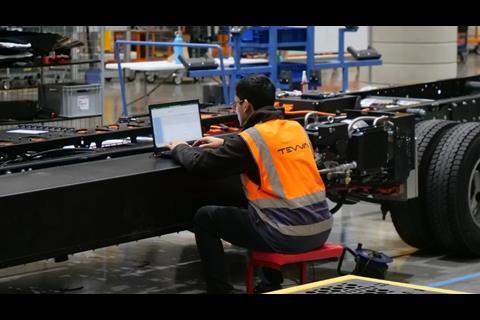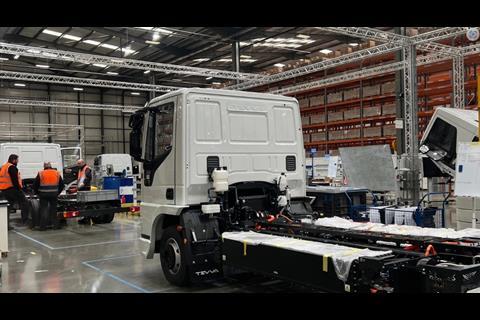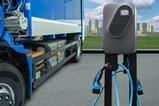Tevva has announced a strategic partnership with EcoBat, the global leader in battery recycling, for the management of its lithium-ion batteries.
The collaboration will begin with a 12-month pilot phase for first-life battery management, with the potential to expand into additional energy storage and recycling solutions. In the unlikely event that an issue arises during the vehicle’s life, Ecobat will ensure that Tevva’s in-house assembled lithium-ion batteries are handled, diagnosed, and repaired using the most effective and sustainable methods.
Tevva is committed to promoting circular economy principles, reducing waste, and minimising costs associated with managing the most expensive component of its electric trucks - the lithium-ion battery. By partnering with global battery experts, Ecobat, Tevva is demonstrating its commitment to providing customers with the best and fastest possible service while minimising its environmental impact.
“By agreeing to this strategic partnership with Ecobat, a company with proven credentials in minimising waste, honoring resources, and respecting rare earth metals, we are letting our customers know that we’ve got their back in the worst-case scenario,” said Tevva Founder and CEO Asher Bennett. “We are also being responsible corporate citizens by preparing for battery end-of-life.”
Tom Seward, EU Key Accounts Director at Ecobat, also expressed his enthusiasm for the partnership, saying that Ecobat is “thrilled to partner with a company like Tevva” to support its battery management. Seward added that working with pioneers like Tevva would provide Ecobat with an opportunity to expand its lithium-ion recycling footprint and further the circular energy economy.
Tevva’s 7.5-tonne battery-electric truck has recently entered mass production at its London facility. The Tevva truck offers up to 140 miles (227 kilometers) from its 105 kWh battery on a single charge and is ideal for last-mile and urban delivery fleets. The company is also set to release a 7.5-tonne hydrogen-electric truck with a hydrogen range-extender that enhances vehicle range to up to 354 miles (570 km).




















